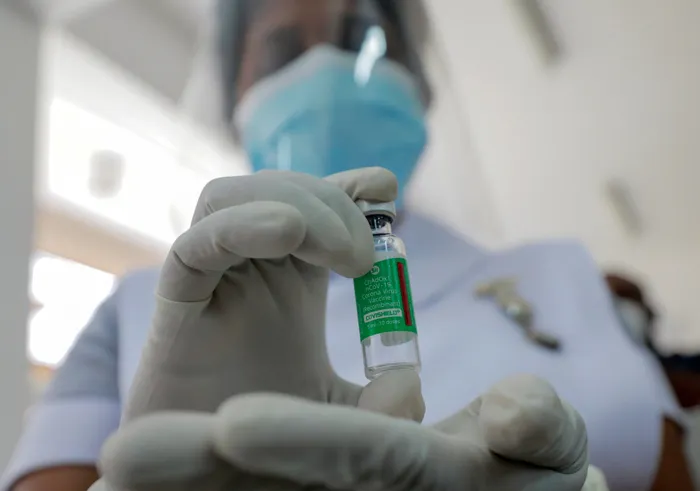WHO gives AstraZeneca the green light in countries with new variant

File picture: Reuters/Dinuka Liyanawatte
A World Health Organisation (WHO) panel has given the green light for the AstraZeneca’s Covid-19 vaccine in countries experiencing the new variant which was first identified in South Africa.
The development came days after the South African government put the vaccine from India on temporary hold from distribution after it was found to be less effective against the new 501Y.V2 variant.
In interim recommendations on the shot, the Strategic Advisory Group of Experts on Immunisation (SAGE) panel said yesterday, the vaccine should be given in two doses with an interval of eight to 12 weeks. They said the jab should also be used in people aged 65 and older against the 501Y.V2 variant.
“There is no reason not to recommend its use. We have made a recommendation that even if there is a reduction in the possibility of this vaccine having a full impact in its protection capacity, especially against severe disease, there is no reason not to recommend its use even in countries that have circulation of the variant,” said SAGE’s chair, Alejandro Cravioto.
South Africa this week paused part of its rollout of the AstraZeneca vaccine after data from a small trial showed it did not protect against mild to moderate illness from the 501Y.V2 variant of the coronavirus.
The WHO said those preliminary findings “highlight the urgent need for a coordinated approach for surveillance and evaluation of variants” and their impact on vaccine efficacy”.
“The WHO will continue to monitor the situation (and) as new data become available, recommendations will be updated accordingly,” said the global health body.
Hours before the WHO briefing, Health Minister Dr Zweli Mkhize said the government was in negotiations with Russia and China to secure shots.
Mkhize addressed a variety of concerns raised by the public yesterday, and said the department of health will now push forward the rollout of the Johnson & Johnson vaccine which has been shown to be 57% effective against the 501Y.V2 strain.
Mkhize explained that this vaccine will be rolled out in the form of an implementation study which will help monitor any effects it might have on already vaccinated healthcare workers.
This was not meant to test the efficiency of the vaccine, but intended to help monitor breakthroughs.
“The Johnson & Johnson vaccine has been proven effective against the 501Y.V2 variant, and the necessary approval processes used in the country are under way. The rollout of the vaccination will proceed in the form of an implementation study with the partnership between the medical research council and the national department of health’s vaccination sites across the country,” he said.
“This will help us get valuable information about the pandemic in the post- vaccination community and thus ensure early identification of breakthrough infections should they occur amongst the vaccinated healthcare workers,” he added.
Along with the Johnson & Johnson vaccine, the country is also expected to roll out the Pfizer vaccine.
Both vaccines had to be procured urgently. This has also resulted in the government needing to re-write its vaccination goals.
Mkhize had earlier indicated that the country aimed to vaccinate 65% of the population by the end of the year with the intention of reaching herd immunity.
Those plans have now been put on hold as the AstraZeneca vaccine formed a huge part of the vaccine rollout schedule.
“The new projections, we are going to be revising them. We are just waiting for the complete schedule of the distribution of the vaccines so we can see when those vaccines are available,” he said.
Scientists would now be tasked with figuring out a plan on how best the government can use the more than one million AstraZeneca vaccine doses which were procured and are set to expire in April.
But defended concerns about the April 30 expiry date on AstraZeneca vaccine, saying the date had been noted, and if the vaccination schedule had not been interrupted, the doses would have been used by that date.
Mkhize said the government was also in talks with the WHOs Covax programme and the African Union, which were on schedule to provide the same vaccine to the country.
In addition to the two vaccines, the government is in negotiations with US-based pharmaceutical company Moderna, the Russians for their Sputnik V vaccine and China for the country’s Sinopharm vaccine.
Cape Times
Related Topics: